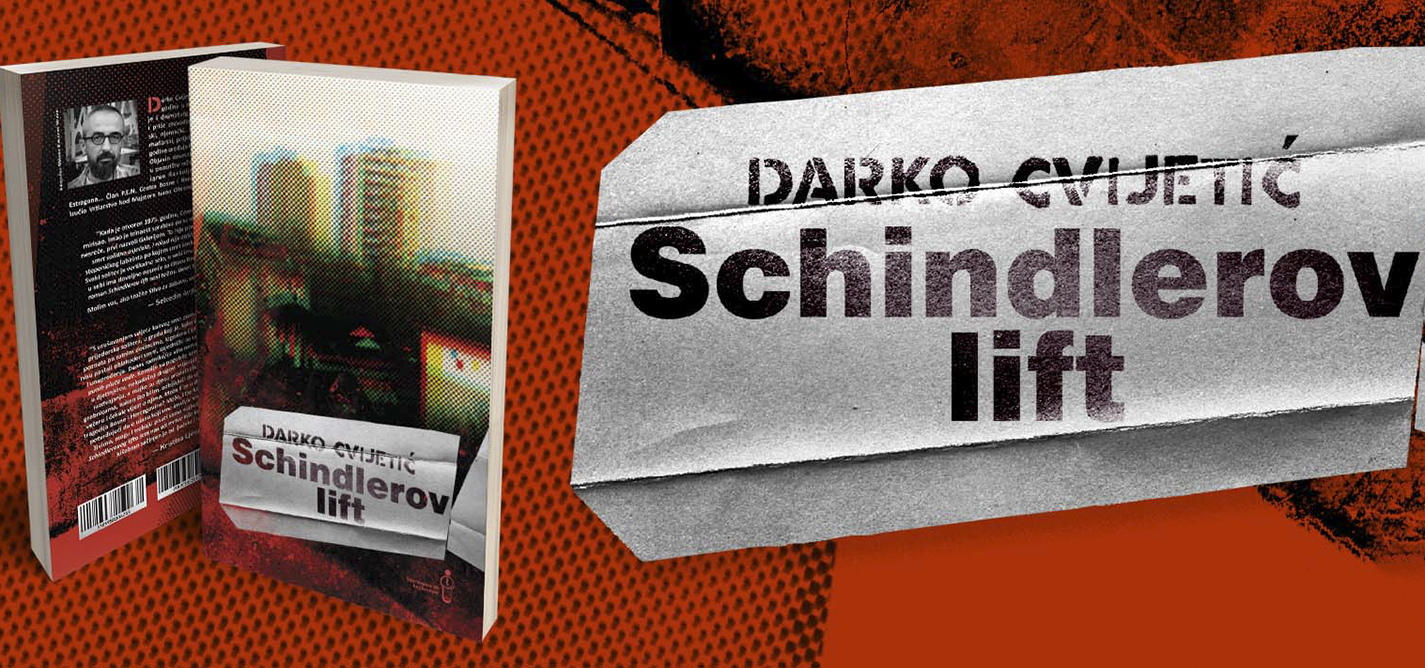
The case of ‘Schindler's Lift’ by Darko Cvijetić
Or a story about a corporation, art and the reality of capitalism.
|22.04.2020
|
If successful, literature escapes the indulgence to enter a state of provincial comfort.
"They said that their elevator isn't connected to either the Holocaust or the Bosnian war," Darko Cvijetić explained the allegations.
Darko Cvijetić was primarily looking for a precise literary image of a horror story.

Đorđe Krajišnik
Đorđe Krajišnik is a literary critic and a journalist at the Oslobođenje daily newspaper and the Dani magazine. In October 2017, he worked as a resident for the Berlin daily Der Tagesspiegel. His literary critiques and other texts have been published in magazines and on websites across the Yugosphere. His publications have been translated into English, German and Albanian. He reviewed and edited several books. Currently, he is working on his first fiction book that will be published soon, should the Muses be in his favor.
DISCLAIMERThe views of the writer do not necessarily reflect the views of Kosovo 2.0.
This story was originally written in Serbian.